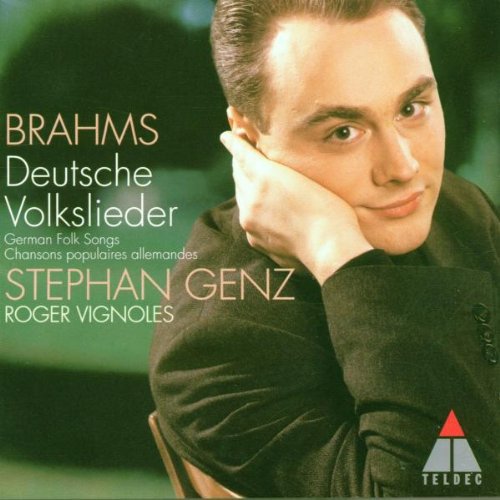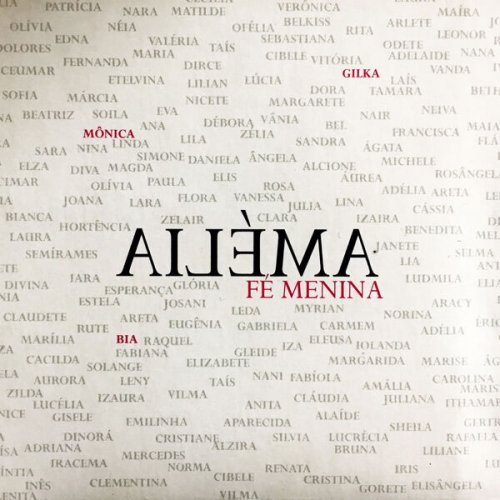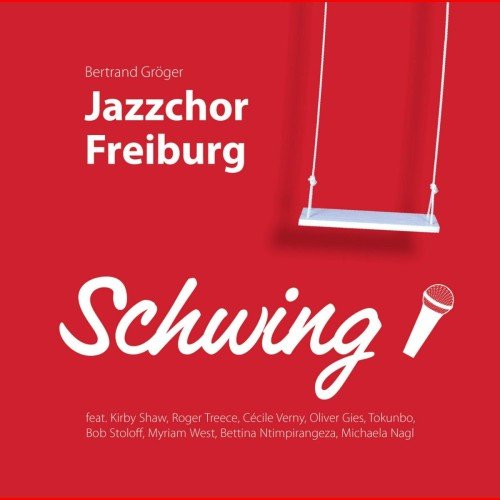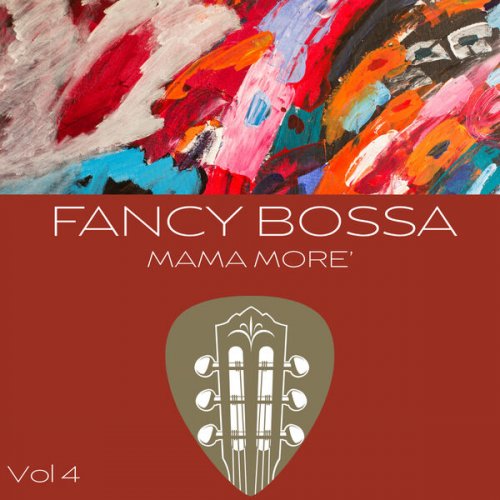Stephan Genz, Roger Vignoles - Brahms: Deutsche Volkslieder (2000)

Artist: Stephan Genz, Roger Vignoles
Title: Brahms: Deutsche Volkslieder
Year Of Release: 2000
Label: Teldec Classics
Genre: Classical vocal
Quality: FLAC (image+.cue,log,scans)
Total Time: 59:13
Total Size: 299 MB
WebSite: Album Preview
Tracklist:Title: Brahms: Deutsche Volkslieder
Year Of Release: 2000
Label: Teldec Classics
Genre: Classical vocal
Quality: FLAC (image+.cue,log,scans)
Total Time: 59:13
Total Size: 299 MB
WebSite: Album Preview
1 Wach Auf Mein' Herzensschöne 1:45
2 Da Unten Im Tale 1:31
3 Gar Lieblich Hat Sich Gesellet 1:05
4 Soll Sich Der Mond Nicht Heller Scheinen 2:29
5 Schönster Schatz, Mein Engel 1:17
6 Ach Gott, Wie Weh Tut Scheiden 1:37
7 Es Steht Ein' Lind' 2:08
8 Es Wohnet Ein Fiedler 1:10
9 Es Reit't Ein Herr Und Auch Sein Haus 3:07
10 Gunhilde 4:27
11 Dort In Den Weiden Steht Ein Haus 1:01
12 Erlaube Mir, Fein's Mädchen 1:14
13 Ach, Englische Schäferin 2:01
14 Jungfräulein, Soll Ich Mit Euch Gehn 2:03
15 Die Sonne Scheint Nicht Mehr 1:25
16 Es Ritt Ein Ritter 2:26
17 Es War Ein Markgraf Über' M Rhein 3:05
18 Sagt mir, o schönste Schäf' rin mein 2:02
19 Feinsliebchen, Du Sollst Mir Nicht Barfuß Gehn 2:38
20 Mein Mädel Hat Einen Rosenmund 1:39
21 Es Ging Ein Maidlein Zarte 3:13
22 Mir Ist Ein Schön's Braun's Maidelein 2:26
23 Ich Stand Auf Hohem Berge 1:55
24 Ich Weiß Mir' N Maidlein 2:21
25 All Mein' Gedanken 2:05
26 Du Mein Einzig Licht 1:02
27 Wie Komm' Ich Denn Zur Tür Herein 1:48
28 In Stiller Nacht 2:55
Brahms always had a liking for the German folk-song. This can be discerned in his own melodies, although he rarely borrowed actual songs or themes. He admitted though that the horncall in his first symphony was something he had heard in the Alps. Also no less than forty of his original songs were settings of German folk-poetry. He collected folk-tunes and he occasionally made arrangements of them, not least for choir. Late in life he found the time to pick some of his favourite songs and compose piano accompaniments to them. He was not what would today be called an authenticist; much of what he set was far from traditional and quite a few of the tunes were actually composed by known composers. Brahms didn’t bother; he chose the tunes he liked and put his harmonic stamp on them. All in all his collection consisted of 49 songs, of which 42 were set for voice and piano, while the rest were for chorus and solo. On the present disc Stephan Genz sings 28 of the solo-songs. He has made a good choice although the remaining 14 are also well worth hearing. Normally, when these songs are performed in concert or on disc, they are sung by two singers, one male and one female. Many of the songs are in fact dialogues between a shepherd and a shepherdess, a hunter and a shepherdess etc and when sung by one singer only they lose something of the idea. Also for the sake of variety it is an advantage to use two singers. It says a lot about Stephan Genz’s singing that one hardly misses the female voice. Among today’s young and middle-aged Lieder singers, and there are many excellent ones around, Genz is one of the best. His is a light lyrical baritone, not dissimilar in tone and timbre to his tenor-brother Christoph. His is a very flexible instrument, he knows how to colour the voice without going to extremes, he controls the dynamics masterly and knows exactly the limitation of his resources. Add to this that it is one of the most beautiful voices imaginable and it is no wonder that he consistently receives rave reviews. This disc, possibly his debut recording, was made in 1998 when he was still only 25. He has developed since, but his singing was already remarkably mature even this early.
The classic recording of these songs is of course the EMI set released in 1966 with Elisabeth Schwarzkopf and Dietrich Fischer-Dieskau, accompanied by Gerald Moore. I have owned it since it was first published and every time I hear some of these songs it is always their version that rings in my head. It can be objected that these two masters might be too artful, too explicit with their word painting, too emphatic. As a matter of fact they seldom are, but there are moments when one could wish for a simpler, more straightforward delivery. Listening to Stephan Genz, that’s exactly what he gives us. There is such naturalness about the whole disc, which of course means that there is a tremendous lot of thinking and planning behind. Interestingly Genz has studied with both Schwarzkopf and Fischer-Dieskau. Listening to e.g. Da unten im Tale (track 2) one can recognize in the last stanza, sung in that exquisite half-voice, something of Fischer-Dieskau’s timbre. This song also demonstrates very clearly his ability to underline the ebb and flow of the music. And this is not an isolated example: in each song there are things to admire, not least the piano playing of Roger Vignoles, who sometimes urges on, sometimes holds back, always having a keen eye (or rather ear) for what his partner is aiming at.
For some reason the songs are performed not in the published order, which Schwarzkopf and Fischer-Dieskau do, but in some random sequence, which works well enough. In some of the “duets” Genz actually colours his voice to impersonate the boy and the girl, but only discreetly so, never over-doing anything (tracks 18 and 19), while in Ach, englische Schäferin (track 13) he doesn’t bother, since Brahms anyway differentiates the accompaniments. Mein Mädel hat einen Rosenmund (track 20) is sung to perfection with flexible rubato and his legato singing in the very last song, In stiller Nacht (track 28), is a marvel. This song is indeed the last in the published order and Brahms wrote to his publisher Simrock: “So let my best song be put last, but let the last be shown as my best.” As sung here it is a worthy end to a wonderful recital. The recorded sound is very good, the balance between voice and piano ideal and the booklet contains not only a good essay by Marcus Imbsweiler about Brahms and his attitude to folk songs, in three languages, but also the sung texts with English translations!
And all this at bargain price.
The Schwarzkopf/Fischer-Dieskau/Moore recording will never be driven out of competition and is a must with all 42 songs, recently reissued at budget price, but Genz’s less sophisticated, more naturally flowing, readings are just as valid. Lovers of this music need both.
Strongly recommended!
The classic recording of these songs is of course the EMI set released in 1966 with Elisabeth Schwarzkopf and Dietrich Fischer-Dieskau, accompanied by Gerald Moore. I have owned it since it was first published and every time I hear some of these songs it is always their version that rings in my head. It can be objected that these two masters might be too artful, too explicit with their word painting, too emphatic. As a matter of fact they seldom are, but there are moments when one could wish for a simpler, more straightforward delivery. Listening to Stephan Genz, that’s exactly what he gives us. There is such naturalness about the whole disc, which of course means that there is a tremendous lot of thinking and planning behind. Interestingly Genz has studied with both Schwarzkopf and Fischer-Dieskau. Listening to e.g. Da unten im Tale (track 2) one can recognize in the last stanza, sung in that exquisite half-voice, something of Fischer-Dieskau’s timbre. This song also demonstrates very clearly his ability to underline the ebb and flow of the music. And this is not an isolated example: in each song there are things to admire, not least the piano playing of Roger Vignoles, who sometimes urges on, sometimes holds back, always having a keen eye (or rather ear) for what his partner is aiming at.
For some reason the songs are performed not in the published order, which Schwarzkopf and Fischer-Dieskau do, but in some random sequence, which works well enough. In some of the “duets” Genz actually colours his voice to impersonate the boy and the girl, but only discreetly so, never over-doing anything (tracks 18 and 19), while in Ach, englische Schäferin (track 13) he doesn’t bother, since Brahms anyway differentiates the accompaniments. Mein Mädel hat einen Rosenmund (track 20) is sung to perfection with flexible rubato and his legato singing in the very last song, In stiller Nacht (track 28), is a marvel. This song is indeed the last in the published order and Brahms wrote to his publisher Simrock: “So let my best song be put last, but let the last be shown as my best.” As sung here it is a worthy end to a wonderful recital. The recorded sound is very good, the balance between voice and piano ideal and the booklet contains not only a good essay by Marcus Imbsweiler about Brahms and his attitude to folk songs, in three languages, but also the sung texts with English translations!
And all this at bargain price.
The Schwarzkopf/Fischer-Dieskau/Moore recording will never be driven out of competition and is a must with all 42 songs, recently reissued at budget price, but Genz’s less sophisticated, more naturally flowing, readings are just as valid. Lovers of this music need both.
Strongly recommended!






![Tomasz Stanko, Polskie Radio - Jazz Rock Company: Live at Akwarium (Polish Radio Sessions vol. 6/6) (2025) [Hi-Res] Tomasz Stanko, Polskie Radio - Jazz Rock Company: Live at Akwarium (Polish Radio Sessions vol. 6/6) (2025) [Hi-Res]](https://www.dibpic.com/uploads/posts/2025-12/1765796554_cover.jpg)
![Cornelius Claudio Kreusch - Scoop (2025) [Hi-Res] Cornelius Claudio Kreusch - Scoop (2025) [Hi-Res]](https://www.dibpic.com/uploads/posts/2025-12/1765893706_folder.jpg)
